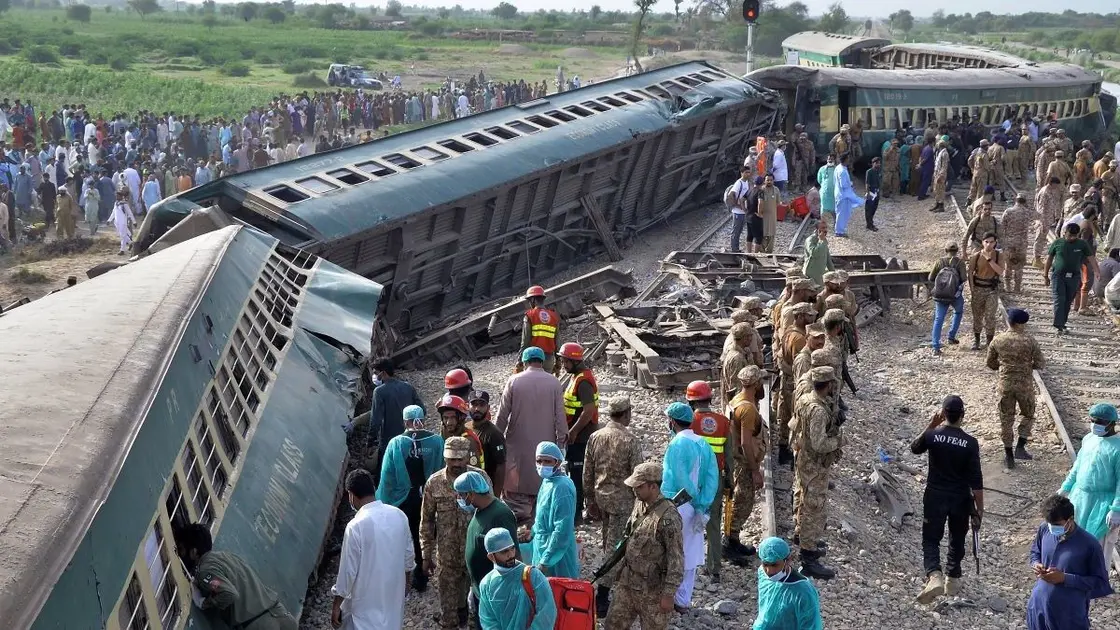30 people were killed and over 90 others were injured after a train derailed in southern Pakistan on Sunday, according to officials. Rescue efforts were finished by early evening.
According to senior railway officer Mahmoodur Rehman Lakho, ten carriages of a train headed for Rawalpindi derailed and some overturned near the Pakistani town of Nawabshah, trapping many passengers.
Follow our Google News channel online or in the app to see all the most recent headlines.
Rescue teams were shown on local television removing women, children, and elderly passengers from wrecked and overturned vehicles. While residents distributed food and water to the injured, some of them were lying on the ground pleading for assistance. Derailed railway cars were seen in or close to the tracks in AP images.
Senior police officer Abid Baloch reported from the scene of the collision that all victims had been saved, and the last automobile that had flipped over had been removed. He claimed that among the injured and killed were women and children.
At a political event in Punjab, Prime Minister Shahbaz Sharif expressed his sorrow over the deaths and prayed for the souls of the dead and the speedy recovery of the injured.
We all pray that Allah would provide the deceased a seat in heaven, and he wished the injured a speedy recovery.
Rescue workers sent injured passengers to the neighbouring People’s Hospital in Nawabshah, according to Lakho, who is in charge of the trains in the accident region. He claimed that ten cars from the tragic Hazara Express, which was travelling from Karachi to Rawalpindi, veered off the tracks close to the Sarhari railway station at Nawabshah.
Ihtesham Ali misplaced his family members and searched for them in the tumultuous environment.
“Seven members of my family and 22 neighbours were missing. So far, only four of them have been located; the others are still missing.”
Train travel on the main railway line was suspended while repair trains were sent to the location, according to Mohsin Sayal, another senior railway officer. Sayal promised that the people on the train will have access to alternate modes of transportation and medical care.
While all departures were delayed, all trains in both directions were halted at the closest stations until the tracks could be cleared. The railway administration repeatedly changing the departure timings, and passengers at Karachi station complained that they were waiting there in vain.
At the Karachi train station, Lahore-bound traveller Owais Iqbal stated: “Our train was scheduled to leave at 5 p.m. We have now been informed that it will depart at 8 o’clock. It could possibly become later. We’re holding out. Because of the inadequate rail infrastructure, we are suffering.
The collision may have been caused by a mechanical issue or sabotage, according to Khwaja Saad Rafiq, the minister of railways. He declared that an inquiry was ongoing.
According to him, rescue personnel and paramilitary troops arrived at the scene and assisted in freeing the trapped passengers. Military helicopters flew the most badly hurt passengers to far-off hospitals for medical care.
In Pakistan, where safety standards are subpar and colonial-era communications and signal systems remain in place, train accidents frequently occur on poorly maintained railway tracks.
